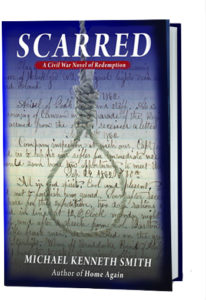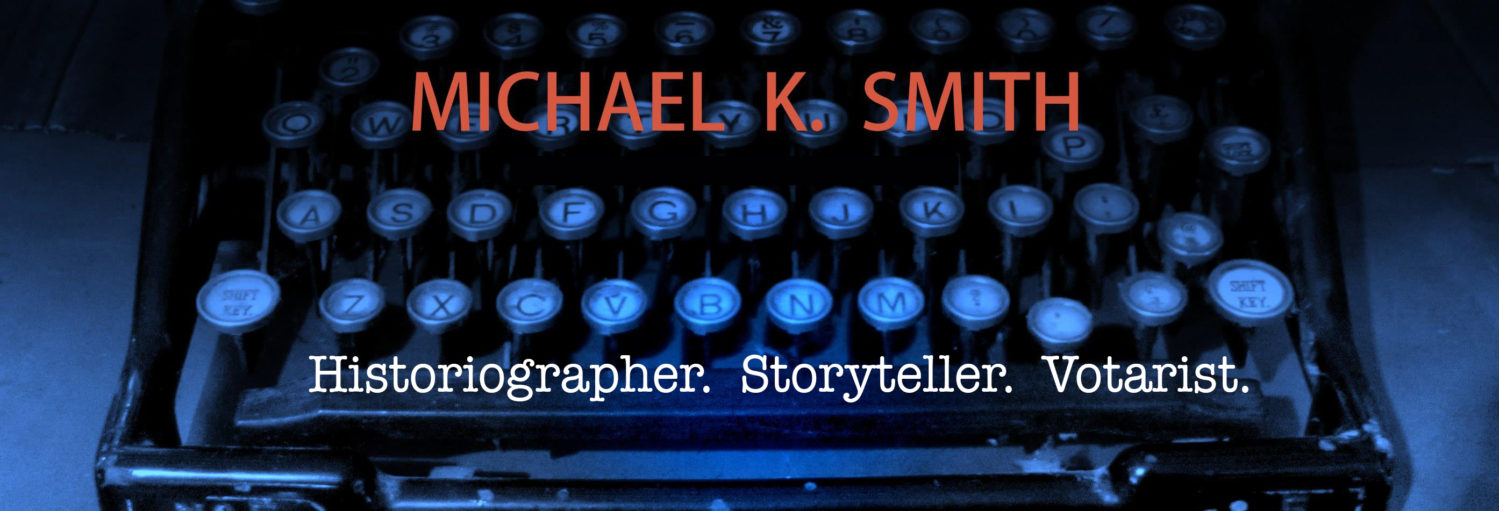 In which we meet Zach, as he sets forth on his journey toward redemption. . . .
In which we meet Zach, as he sets forth on his journey toward redemption. . . .
Chapter 3
Late Fall 1863
A reddish-orange sun rose above the heavily-treed mountains to Zach’s right as he rode away from Knoxville. His ears ached from the morning cold.
His horse was a big chestnut gelding with hooves the size of dinner plates. Zach thought he looked like an old warhorse, and he suited his needs perfectly. Zach had bought the horse from a Knoxville livery, and the choices had been few, as both sides of the war had either purchased or confiscated almost all the horses in the area.
He had packed his saddlebags with dried beef, coffee, hardtack, and a few cans of beans. Across the back of his saddle, he tied a blanket, hatchet, and poncho, all wrapped up in a waxed ground cloth. He was prepared to travel a long time.
Zach had left home in the middle of the night so he wouldn’t have to explain himself to his parents. They would have tried to talk him out of whatever he intended to do. Of course, at the time, he didn’t have a plan, but he was haunted by remorse, and the only thing he could think of was to try to find a way to make amends to the family of the sharpshooter. He had no idea what he would do if and when he found the lady in the picture, but he felt better just trying to do something about it.
Zach planned to ride through the night and the next day to get over the Cumberland Gap before nightfall came again. Because of his aversion to any kind of firearm, he was unarmed. His discharge papers, signed by Colonel Berdan, lay folded at the bottom of one of his saddlebags.
Also, packed in his saddlebag was the dead man’s forage cap. He thought it might help prove to the family that he wasn’t an imposter trying to take advantage of a widow. Also, the inscription inside the cap, “McGowan’s Brigade” was the only clue he had as to the man’s identity.
By late afternoon, Zach had traversed the gap, and the mountains receded into foothills. He had gotten used to the clump-clump of his big horse’s hooves as he picked his way along the narrow passage. The sky had been clear all day, but as the sun set, thick ominous clouds portended the approach of a storm.
Zach made camp near a small creek under a big elm tree. He tethered his horse on a long rope and gathered firewood. As he prepared a place to sleep, he remembered camping with his father and the good times they had. So much had changed.
Zach rested his saddle up against the tree and lay down on his waxed ground cloth with his head on the saddle and his feet near the fire. The saddle smelled of leather, human sweat, and the distinctive musty pong of horse. He wondered what his parents thought when they found out he had left and regretted the worry they must be feeling. He cursed to himself. He could have at least left a note. He chewed on some hardtack and washed it down with water from his canteen. His eyelids became heavy, and he slept.
A loud crack of thunder and the simultaneous urgent whinny of his horse awoke him from a deep sleep. A sudden gust of wind blew hot embers from his campfire into some surrounding brush which instantly caught fire. Zach ran over and secured his horse further away, upwind, and when he returned, the fire was spreading fast through the brush. He beat the flames with his blanket, but they were over six feet high by then and his efforts had little effect. Thick smoke with the smell of burning underbrush burned Zach’s nose and throat and stung his eyes, forcing him to stand away. Bolts of lightning pierced the sky, accompanied by earsplitting thunder. The fire raged toward the creek, with the wind acting like a bellows, sending plumes of smoke across the countryside.
Then the rain came. First, large drops, almost horizontal on the wind, stung his face. As the drops hit the fire, they made a hissing sound, then a popping like bacon frying in a skillet. The rain increased, stifling the flames and sending up even more smoke. Lightning lit the sky and Zach could see the clouds of smoke moving up the mountainside.
The wind died down, and the rain became a deluge, dousing the fire and turning the ground to mud.
Zach huddled under the elm with his ground cloth over his head. The temperature dropped and he shivered. The raindrops turned to a fine mist then stopped completely as the storm moved on and the air became still. He wrapped himself with his blanket, then with his ground cloth, and lay down. The only thing Zach could hear were heavy drops of water falling off the trees onto soaked leaves. The smell of wet earth and ashes hung in the air. Zach slept.
The early morning light wove its way through the trees as Zach awoke cold, damp and hungry. He rolled out of his blanket and stood up. His ached from the hard ground and dampness. He decided he needed to start a fire to dry everything out before he traveled on. With his hatchet, he removed the wet bark from several dead tree limbs he had gathered, exposing the dry centers. He cut the limbs into small pieces and propped them like a tepee near where his previous fire had been. Then he carefully cut shavings and formed a thick ball. Striking two pieces of flint together, he made sparks, and after many tries, one of the sparks ignited the shavings. Holding the shavings in his hand, he gently blew on the tiny flame and placed it under the tepee firewood. He continued to blow, and the flame grew and ignited the larger limbs. Smoke rose as the little fire gained strength. Zach squatted beside the fire with his hands spread out to warm them. He always felt a sense of satisfaction when he made a fire, but this one had been tougher than usual.
The sound of Zach’s horse chewing on grass suddenly stopped. His head turned to the south with his ears pointing alertly at something he heard in the distance. Then Zach heard it, also—the sound of approaching horses, and rattling sabers.
He grabbed his saddle and ran toward his horse, but it was too late to escape. Six men rode into his camp and surrounded him. Their horses pranced and stomped, gnashing their bits as the riders pulled on the reins. They were lathered, breathing hard, their breath forming puffs of vapor, which rose in the thick morning air. The riders uniforms were gray.
The lead horseman, a sergeant, judging by the three stripes on his shoulder, said with a deep drawl, “A young feller like you roaming these here parts can only be a Yankee sympathizer or a Goddamn deserter.” He leaned forward with both hands on his saddle horn, and said with a sneer, “Which are you, mister?” The man’s red hair looked like a bird’s nest with a forage cap on top. His red beard was stained and unkempt. His teeth were stained almost green, and the side of his cheek bulged with tobacco.
The rider next to the one with stripes said, “Makes no difference if he’s a deserter or a sympathizer. We’ll hang him either way. Right, Sarge?” He reached back and untied a rope from his saddle and made a loop, grinning. He was hatless, his stringy dark hair hung down to his shoulders. He had a scar on his right cheek that extended past a hole where his right ear once was.
Zach silently cursed himself for not having prepared an answer to such a question. He decided to tell the truth. “I was on the Union side for a while, but I was discharged,” he said.
“Likely story. Do you expect us to believe that?” Another said.
“Show us your discharge papers,” the sergeant said. “Bet you don’t have ‘em, do ya?”
Zach thought about it briefly, then said, “They’re in my saddlebag.” He leaned over to open the bag, and as he did, a third soldier pushed him hard, knocking him to the ground.
“We’ll do the looking, you deserting son-of-a-bitch,” the man with one ear said, dismounting. He grabbed the bags and turned them upside down. Everything came tumbling out: beans, hardtack, coffee. Seeing no discharge papers, the man said, “Just as we thought. No damn papers in here. Time to string him up. Let’s do it. ”
“Hold on a minute, Harris,” the sergeant said, dismounting. He looked through the saddlebags, pulled out some papers that had been wedged in the bottom, and opened them up. He studied them, his finger pointing to each word. He went over the text again, his forehead wrinkled. Finally, he said to the others, “Well it’s a discharge sure enough. It’s signed by Colonel Hiram Berdan of the U.S. Sharpshooters.”
When the others heard “Sharpshooters,” they all stiffened as if they had seen a rattlesnake hiding in rocks. For a moment, they were quiet, until finally the sergeant said, “You’re one of those bastards?”
“Let’s hang the son-of a-bitch. This tree right here should do. C’mon, Sarge. This guy isn’t even worth taking prisoner,” Harris said, in an anxious tone. “Let’s do it now and get going. We got ground to cover.”
Zach realized things were getting out of hand. “You’re making a mistake,” Zach said. “I no longer want to fight. I’m just riding…” He lay there, looking up at his assailants.
“Shut up you lowdown scoundrel,” Harris said. “Here, try this on.” He slipped the loop over Zach’s head. He pulled it taut and threw the other end over a low limb of the elm. “This should do it. Somebody get his horse.”
The sergeant stroked his short beard, deep in thought. “Wait a minute, boys. This man has only recently been discharged. He might have some information we can use. We don’t get many sharpshooter prisoners. Maybe we should take him in and see what the captain wants to do.”
The others looked disappointed. As though somebody had just denied them a shot of whiskey .
“Yep, that’s what we’re gonna do. We’ll take him in, and if the captain has no use for him, we’ll string him up then—hang him high. We can wait a couple hours. We need to be sure. He looked at Zach, “Get your sorry ass up. And by the way, you ain’t got but a few hours left to live.” He spat a stream of dark brown fluid, which landed near Zach’s feet.

Leave a Reply